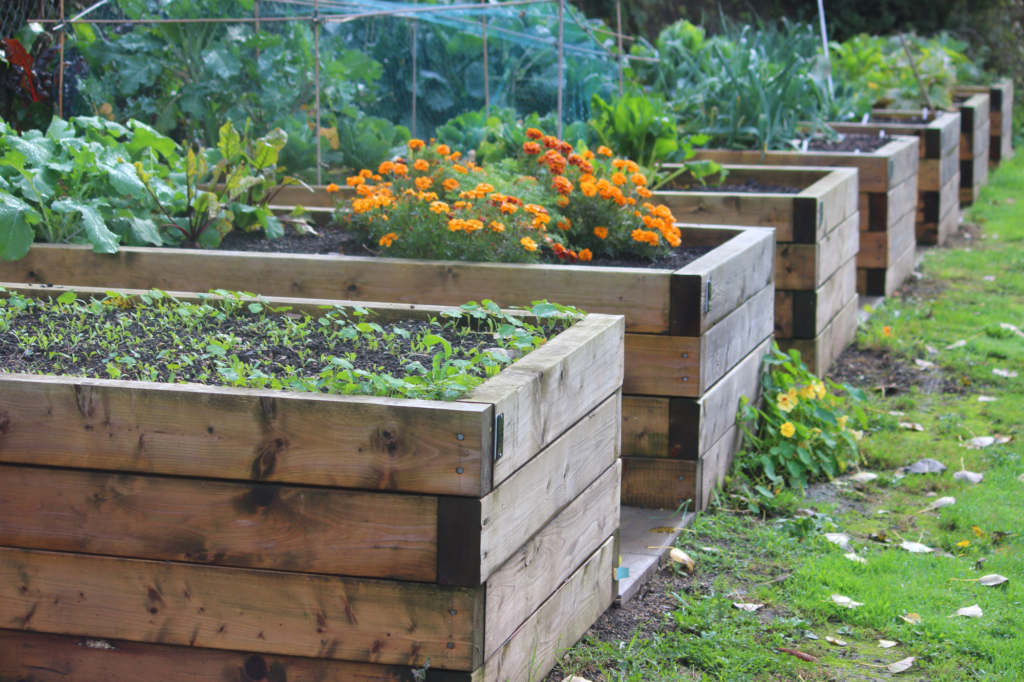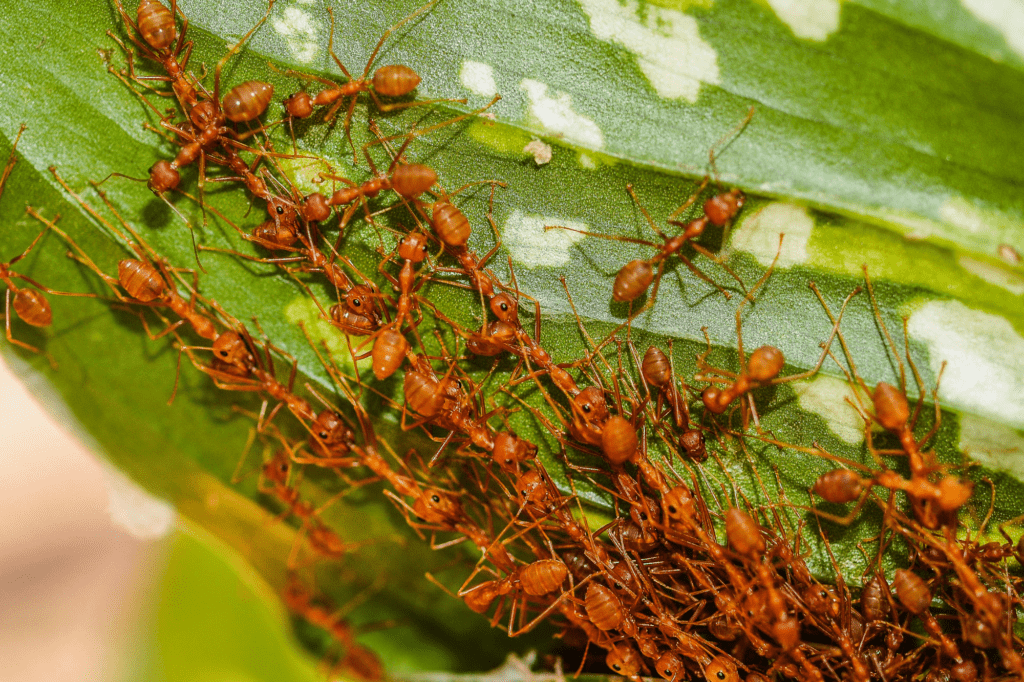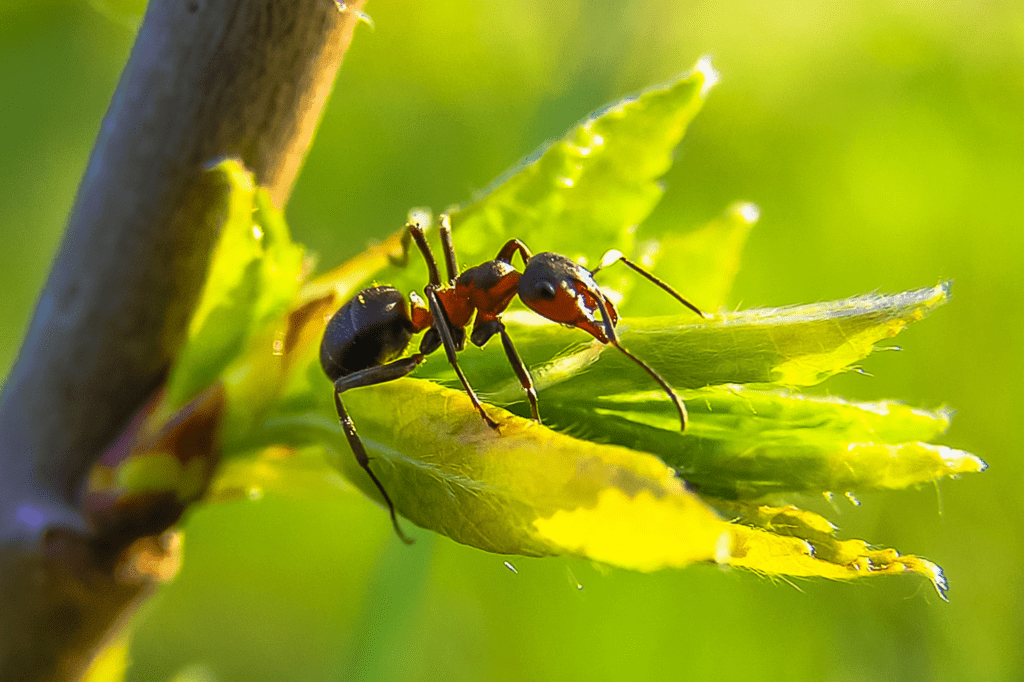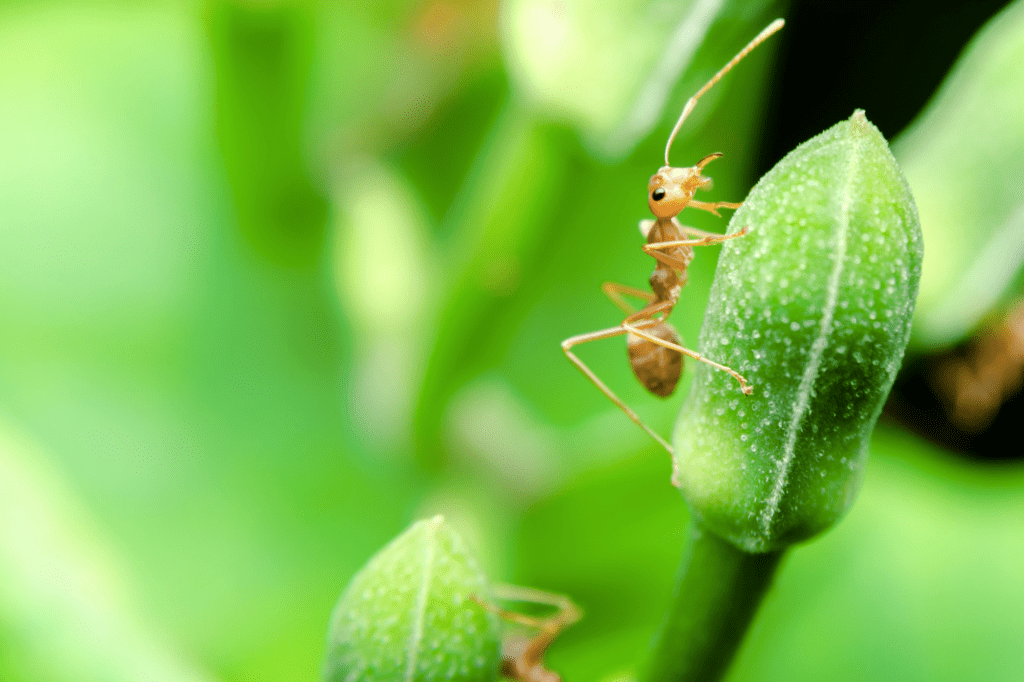You’ve lovingly tended to your garden, carefully selecting the perfect plants and diligently watering and nurturing them. However, one day, as you admire your blooming flowers and flourishing vegetables, you notice a line of tiny intruders passing through your garden bed.
You’ve got ants in your plants!
Do these industrious little creatures pose a threat to your beloved plants, or are they just harmless spectators in the garden symphony?

Are Ants in a Garden Bed a Good Thing?
While ants may seem like tiny troublemakers they are actually quite beneficial to your garden beds.
Ants play a vital role in nature. These tiny creatures are nature’s gardeners, diligently working to maintain the delicate balance of ecosystems.
Ants aerate the soil as they tunnel, enhancing drainage and allowing oxygen to reach plant roots. Additionally, ants are expert decomposers, breaking down organic matter and returning nutrients to the soil.
In a way, ants are like the unsung heroes of your garden, quietly toiling away to create a healthy and thriving environment.
Ants as Garden Pests
However, when it comes to ants in your plants, an excessive population can transform your thriving vegetable garden into a pest patch. Despite their crucial ecological role, ants can sometimes become unwelcome guests in our gardens. Certain ant species can cause significant damage to plants and structures, such as:
Fire ants: Their painful bites and aggressive nature can turn your serene gardening experience into a painful encounter.
Carpenter ants: These ants burrow into wood and can weaken the structural integrity of fences, garden sheds, or raised garden beds.
These instances highlight the need to understand when ants cross the line from being helpful to becoming garden pests.


Ant Prevention and Management
Natural Ways To Get Rid of Ants in Your Plants
Many gardeners prefer natural and eco-friendly methods when it comes to keeping ants at bay. Fortunately, there are several ways to get rid of ants without damaging your environment.
Consider planting companion plants that repel ants, such as:
- Mint
- Lavender
- Marigold
These aromatic herbs and flowers can act as natural ant repellents, creating a fragrant barrier that ants find unappealing.
You can also use homemade remedies like vinegar or citrus peels to create ant-deterrent sprays.
Practical Steps for Ant Control
If preventive measures aren’t enough to control the ant population in your garden, there are practical steps you can take to manage the situation.
- Identify ant trails: Observe and locate ant trails to understand their entry points.
- Disrupt the trails: Wipe away ant trails with soapy water to confuse and disrupt their communication.
- Remove food sources: Keep your garden clean and free of food debris that may attract ants.
- Create barriers: Use natural deterrents like cinnamon or coffee grounds to create barriers ants won’t cross.
- Maintain garden hygiene: Regularly inspect your garden, seal entry points, and keep the area tidy to discourage ants from returning.

Calling Pest Control Companies
If you’re dealing with a persistent ant infestation that seems beyond your control, or if you suspect the presence of destructive ant species like carpenter ants, it’s time to seek professional help.
Pest control companies have the knowledge, experience, and specialized tools to effectively eliminate ants and protect your garden from further damage.
Protect Your Garden With Madsen Pest Management
Ants in your plants can be a double-edged sword, bringing benefits or becoming a nuisance, depending on the species and their impact on your garden beds. Understanding the role of ants in ecosystems and their potential as garden pests empowers homeowners and gardeners to take proactive steps for ant prevention and management.
Let’s say goodbye to those uninvited guests and embrace a garden teeming with life — minus the ants. For reliable and eco-friendly pest management solutions, trust the experts at Madsen Pest Management. Your garden deserves the best care possible!
Related Posts
NEW YEAR, NEW PEST PROBLEMS
As the calendar flips to a new year, we’re welcomed by the icy embrace of freezing temperatures and drifting snow. This season not only blankets the world in snow and chilly air but also introduces distinctive challenges in the realm of winter pest control. While many pests seem to disappear, some resilient critters thrive in…
THE GIFT THAT KEEPS ON GIVING – MADSEN PEST’S TOP TIPS FOR PEST PREVENTION
December is the season of giving, and at Madsen Pest, we’ve got the gift that keeps on giving – a pest-free home! Let’s face it; no one wants uninvited guests for the holidays, especially the creepy-crawly kind. So, as you dust off your festive decorations, here are our top tips for keeping pests at bay…
MADSEN PEST GIVES THANKS
With the holiday season approaching, we wanted to express our gratitude and thankfulness for our amazing customers and the wonderful Madsen Pest team that makes our company a success. Our heartfelt thanks go out to each and every one of you for your continued support. This month, we’re dedicating our blog to the glowing reviews…



